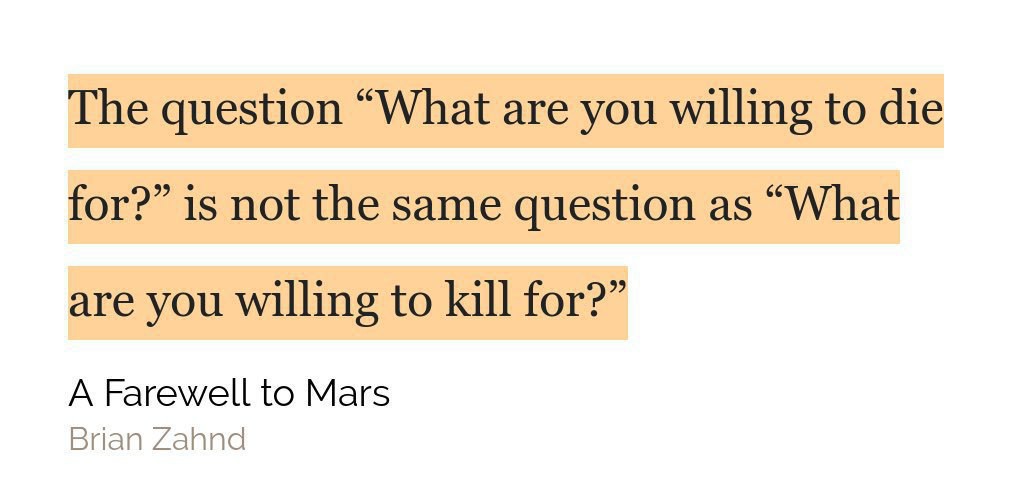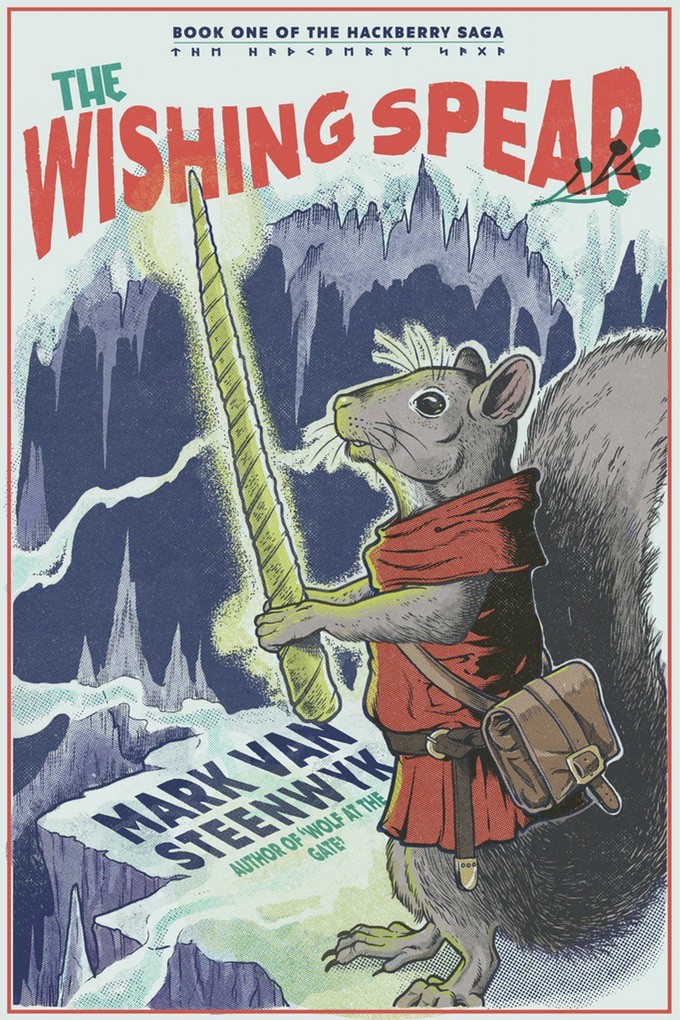Anabaptism
- Code Switch: If you don’t know what code switching is, you definitely need to listen to this. If you already do, you will likely enjoy the variety of topics and perspectives and the charming hosts.
- Cyber: covering information security from the perspective you’d expect of Motherboard/Vice
- The Ezra Klein Show: this is my new favorite show, overtaking Farnam Street as the best big ideas podcast, due to having a perspective, better back-and-forth, and deeper-dives
- Freakonomics Radio: granted, some of this is “pop econ”, but it’s entertaining and frequently has good investigative research or covers big ideas.
- From Embers: this is a Canadian anarchist podcast that often covers indigenous rights and our climate catastrophe
- Invisibilia: a charming and perspective-widening show from NPR
- The Knowledge Project: this podcast is interviews with “big thinkers”. The interviews often wander, but there are almost always important takeaways or food for thought.
- Long Now - Conversations at the Interval & Seminars About Long-Term Thinking: the perspective of these podcasts is incredibly important, and the topics are often enlightening. They suffer a bit from being Silicon Valley focused, but are otherwise very good.
- The Peter Attia Drive: deep dives on health, medicine, and longevity.
- Note to Self: a philosophical take on technology trends.
- Radiolab: entertaining, sometimes enlightening, and incredibly well-produced.
- The Rebel Beat: a source for a wide variety of radical political music.
- Rebel Steps: how-tos for people learning about organizing for direct action, solidarity, and mutual aid.
- Risky Business: information security current events coverage, with excellent analysis. Skip the branded interviews
- Scene on Radio: As you add this podcast, make sure you have your app setup to listen to a season in order. Seasons 2 & 3 (“Seeing White” and “Men”, respectively) were excellent, and I’m looking forward to season 4.
- Sleepwalkers: in-depth discussion around the opportunities and risks of artificial intelligence
- Wait Wait…Don’t Tell Me!: a humorous weekly news quiz that you probably already know about.
- How To Be An Antiracist by Ibram X. Kendi: it’s rare for me to give 5 stars to anything, but Kendi did an excellent job sharing complex and important perspectives in an informative and actionable way.
- Digital Minimalism by Cal Newport: Highly recommended book exploring how you can focus your digital time on the things that matter most. Unlike many minimalism-focused works, Newport goes into great detail in what to do with the space & time that you free up. My full review/reference (as well as links to my experiment and a podcast I recorded for Resilient) are found here.
- Educated by Tara Westover: an incredible memoir of someone who grew up in an abusive, anti-intellectual, conspiratorial home environment without any real schooling (home or otherwise) and went on to earn a prestigious PhD.
- How to Change Your Mind by Michael Pollan: an informative book about psychedelics and their applications in medicine.
- Talking to Strangers by Malcolm Gladwell: incredible narratives and insights of how things can go wrong when we talk to strangers, along with some (admittedly light) recommendations on how we can change structures and systems to do better.
- Offscreen edited by Kai Brach: I read issues 17 through 19 of this large print-only magazine in 2019, and often found value in the interviews, perspectives, and recommendations. “Offscreen is an independent print magazine that examines how we shape technology and how technology shapes us. "
- Southern Horrors by Ida B. Wells: this classic and important work is a reminder of how fear, power, and violence were (and still are) wielded to subjugate people.
- The Power of Habit by Charles Duhigg: All about the various factors that affect habit formation and change. You can see my full reference and review here.
- Rework by Jason Fried & David Heinemeier Hansson: the folks at Basecamp continue to bring countercultural guidance on simplicity, focus, agility, and sustainability for operating an organization.
- Start With Why by Simon Sinek: over and over, Sinek reminds us that our why is what people are drawn to, and that the rest is rationalization.
- Ultralearning by Scott H. Young: a collection of tips from Young’s ultralearning experiments and research.
- Technopoly by Neil Postman: a book of criticism that asks more questions than it is prepared to answer, but still an incredibly important work to grapple with. I read this as part of Strangers Book Club, which I highly recommend.
- The Oz Principle by Roger Connors, Tom Smith, and Craig Hickman: this is a book about continually asking the helpful question “What else can we do to rise above our circumstances and get the results we want?”
- Food Rules by Michael Pollan: short summaries of Pollan’s research on eating, including many tips on how not just what to eat.
- Open Borders: the Science and Ethics of Immigration by Bryan Caplan and Zach Weinersmith: a collaboration presenting the case for open immigration. Unfortunately heavy on the economic benefits and light on the ethical rationale, but still a useful work to bring exposure to this important topic.
- Ten Arguments for Deleting Your Social Media Accounts Right Now by Jaron Lanier: this is a good companion to Digital Minimalism, detailing some of the reasons that most social media is manipulative and unhealthy for people and our digital ecosystem.
- Ancient Civilizations of North America by Edwin Barnhart: an excellent background on the history of North America before modern colonists.
- Heretic! by Matthew J. DiStefano: the title refers to judgments aimed DiStefano, due to theological interpretations rooted in love & justice instead of fear & hate.
- Faith Unraveled by Rachel Held Evans: originally called Growing Up in Monkey Town, this memoir shares Evans’s tale of reclaiming her faith back from a fear & judgment paradigm.
- The Tipping Point by Malcolm Gladwell: stories about how ideas and behaviors gain traction.
- The Third Chimpanzee by Jared Diamond: a look at how humans are and aren’t different from the “other chimpanzees”.
- The Alcohol Experiment by Annie Grace: an informative, judgment-free journey with solid grounding in psychology and behavioral science.
- The World in 2020 by the Economist: this is Economist’s yearly comments and predictions for the coming year.
- The Pioneers by David McCullough: this book by the acclaimed historian covers those who colonized the Ohio Valley.
‘King was arrested 29 times in his short life. Many of those times, he was charged with “disturbing the peace.”’
From “Why we need to move closer to King’s understanding of nonviolence” from Waging Nonviolence.
Sunday Quote

“The kingdom of heaven is in a basement”
Parables of the Kingdom: a poem from Isaiah Lewis from Mercy Community Church it Atlanta, Georgia.

“It’s very easy to come up with superficially persuasive arguments that can justify just about anything. The job of an intelligent populace is to see whether those arguments can actually withstand scrutiny.”
I’m a day late, but here’s this year’s results for Public Domain Day! 📚 #AbolishIP
2019 🎙 Review
When I’m commuting, doing chores, taking a walk, or even playing open-world video games, I often listen to spoken word. Sometimes these are audiobooks, but the rest of the time it’s podcasts.
I recommend Overcast for listening to podcasts, and am a happy subscriber.
This year, I started my own Podcast and Newsletter, Resilient. The frequency is low-volume while I find my bearings. Note: Resilient newsletter posts are free, but you do have to subscribe to get access to the podcasts. This is not expected to be a money-making endeavor for me, but I do want to limit the availability of the voice recordings to those who are truly interested. I charge the lowest price that Substack (my provider) allows and then add a hefty discount on top of that. If you would like a free gift subscription to the podcasts, please message me directly.
While I appreciate the idea of “chatty”, “actual-play”, and “review”-style podcasts, you won’t find those here.
Recommended Podcasts
Further Notes
Last year’s podcast recommendations can be found here. I have re-used some of it as appropriate. You can read about my book recommendations here: non-fiction and fiction.
2019 📚 Review: Nonfiction
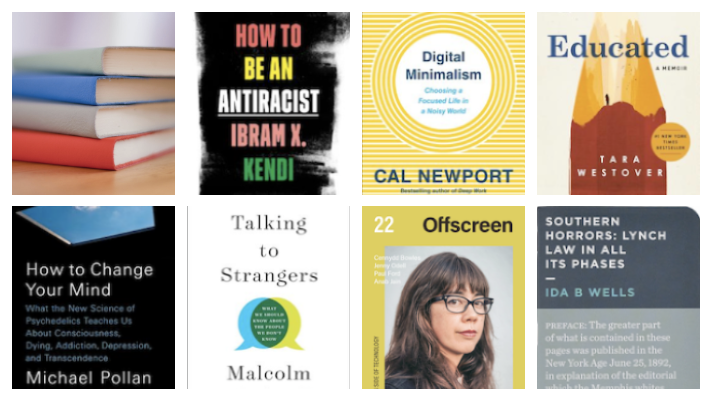
Overview
I set a goal of reading 63 books in 2019, which was a 10% increase over 2019. I met this goal exactly. I have again increased my goal by 10% and plan to read at least 70 books in 2020.
About half of the books I read (31, to be exact) were non-fiction. I seek books that may be “eye-opening”: those that challenge my understanding, worldview, and conceptions. I look for books of criticism, history, philosophy, ethics, theology, psychology, business, economics, and politics.
How I Read
For nonfiction, I get the books multiple ways. If I’m not sure I’ll like it and don’t expect I’ll need to take a lot of notes, I look for the audiobook or summary first in my Scribd subscription and then Libby (to borrow digitally from my local library). If I know I’ll want to reference the book a lot after finishing it, I order a hardback via Indiebound or Alibris. If I expect to learn a lot and/or take lots of highlights and notes, I’ll borrow the ebook via Libby or buy it from an ebook seller.
My book (and article) highlights and notes from all sources go automatically into Readwise.io, where I review 15 highlights each day to aid in retention and reflection. This is one of the ways I start my day, and it’s incredibly valuable.
I rate books between ⭐️ and ⭐️⭐️⭐️⭐️⭐️, with ⭐️⭐️⭐️ being the cutoff for a worthy book. Thus, I will only share about the ⭐️⭐️⭐️ through ⭐️⭐️⭐️⭐️⭐️ books, here.
Recommended Books
⭐️⭐️⭐️⭐️⭐️
⭐️⭐️⭐️⭐️
⭐️⭐️⭐️
Further Notes
For a review of my fiction read in 2019, see here. For 2018 books, see here.
For the Goodreads overview of my reading, see here.
Note: this post has affiliate links. I am linking to things I truly enjoy, and have not been paid or pressured to recommend any of them.
So, bougie Carmel jerks who put a lot of wear on Indianapolis roads (but don’t send taxes to pay for them) complained about the bus stops at the end of Indy’s Red Line and now we don’t have nearby service on the north of Indy anymore. 🚎
Sunday Quote:

Happy first day of Christmas! 🌟
Sunday Quote
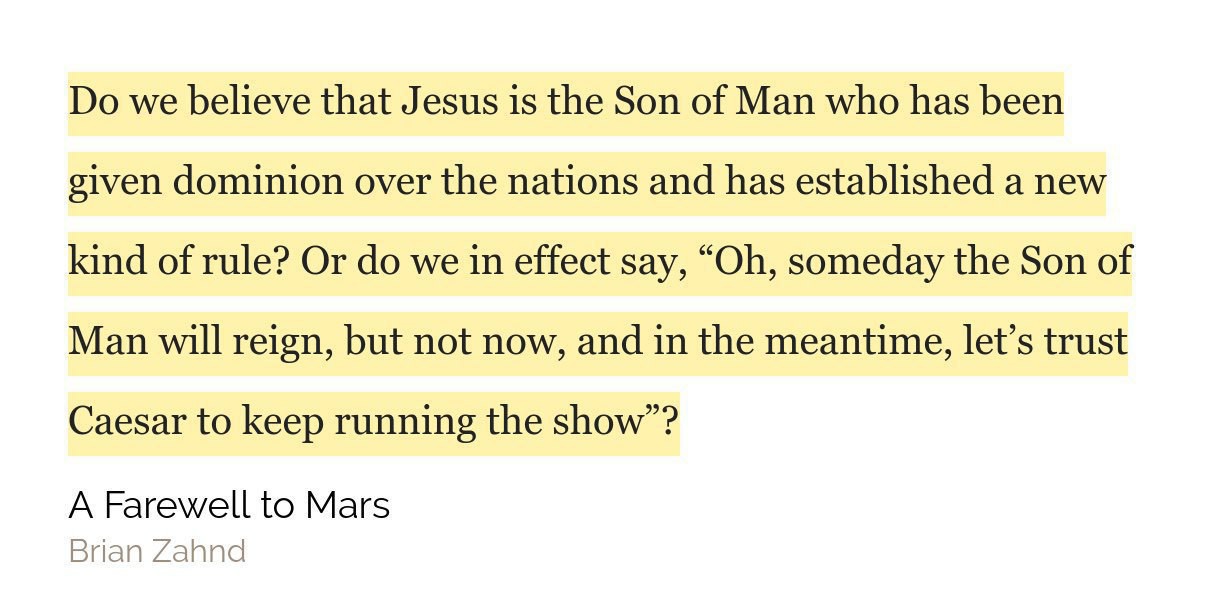
August Burns Red makes my favorite offbeat Christmas music. Sleddin' Hill was really good. Here’s the more recent Winter Wilderness EP.
from Part two of Thank You, Anarchy over at Experimental Theology:
“who do you think is trying harder to obey Jesus, the anarchists or the church?…Matthew 20.25-27”
Experimental Theology on Anarchy:
I enjoy being a student of resistance movements and anarchist communities because I think the church is a similar type of community and movement.
Yes!
Sunday Quote
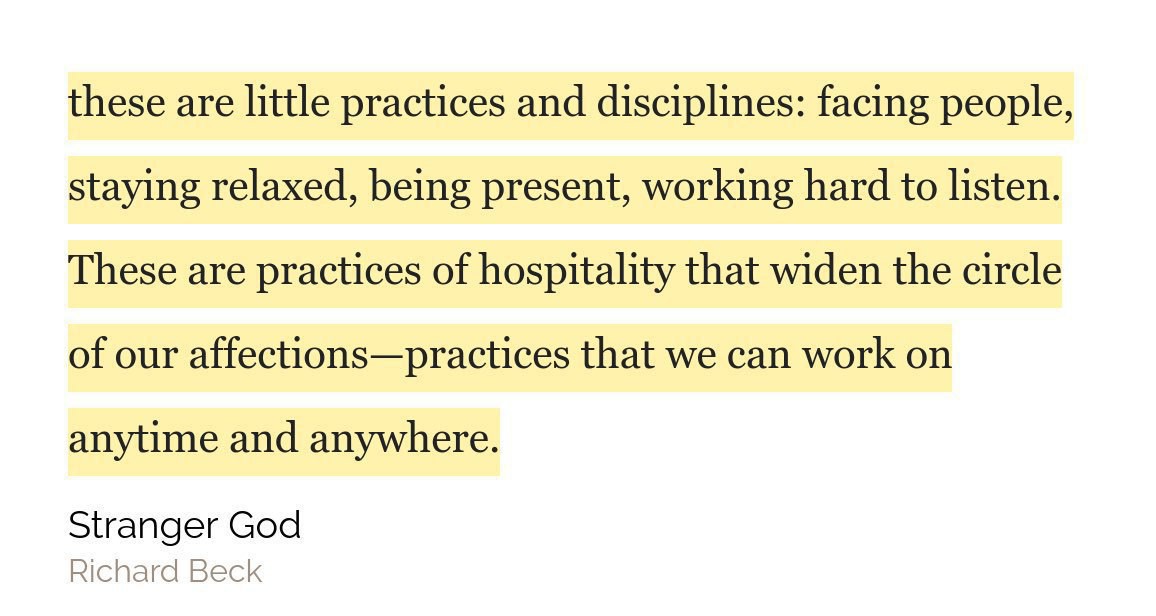
Awesome new shirt & bag for sustaining members of Waging Nonviolence, along with the description behind each icon.

We’re seeing more like this, and it’s excellent subversive action like Jesus’s examples of: turning the other cheek, carrying the extra mile, or stripping off and giving your clothes. Church nativity scene puts the holy family in cages.
In Advent, we cry out “when, God, when!” God replies “the kingdom of God is among you.”
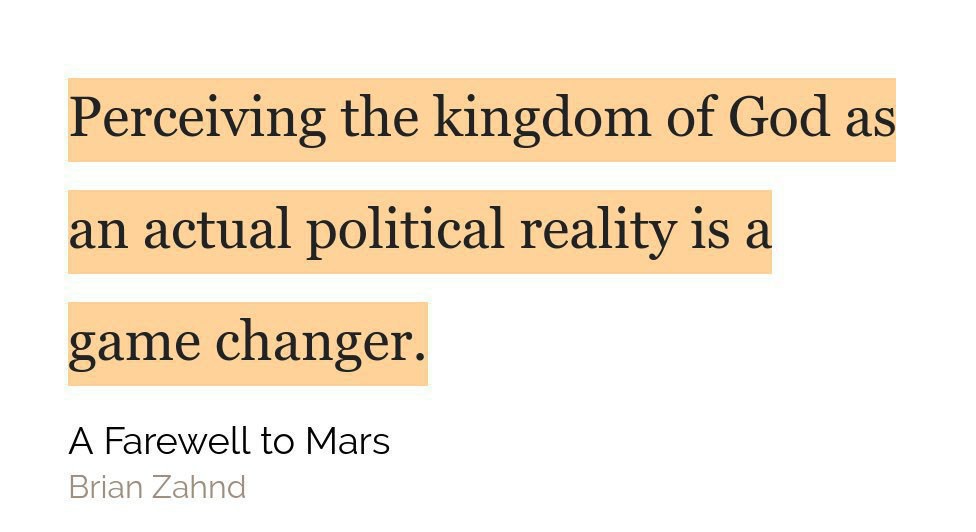
Sunday Quote 📚
